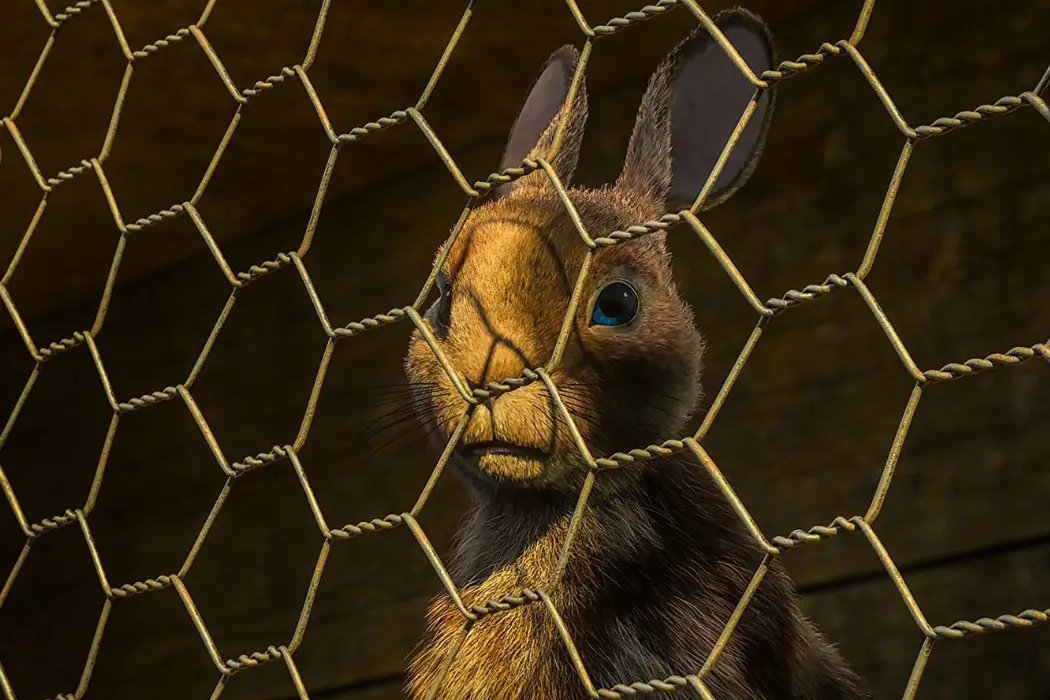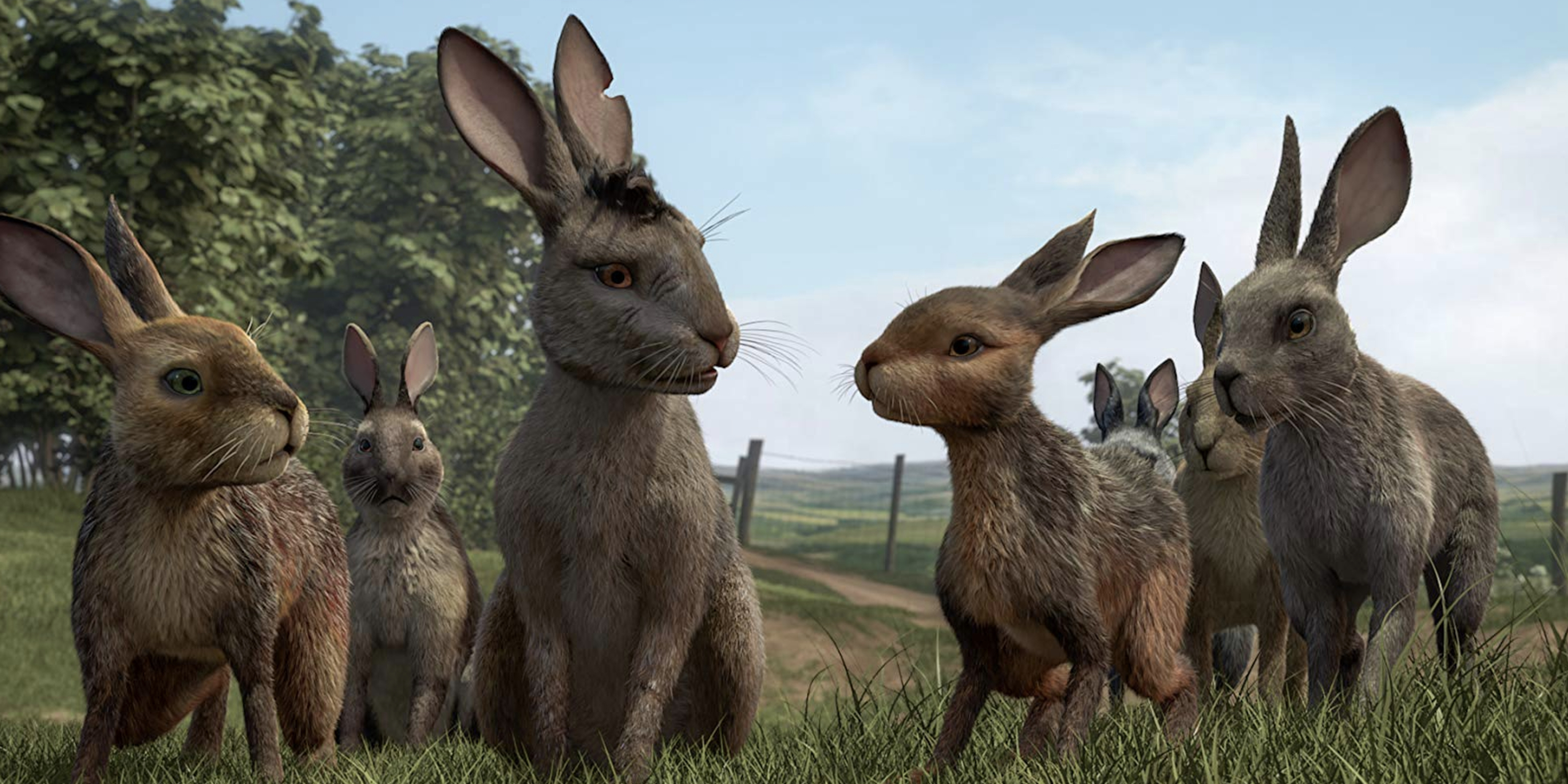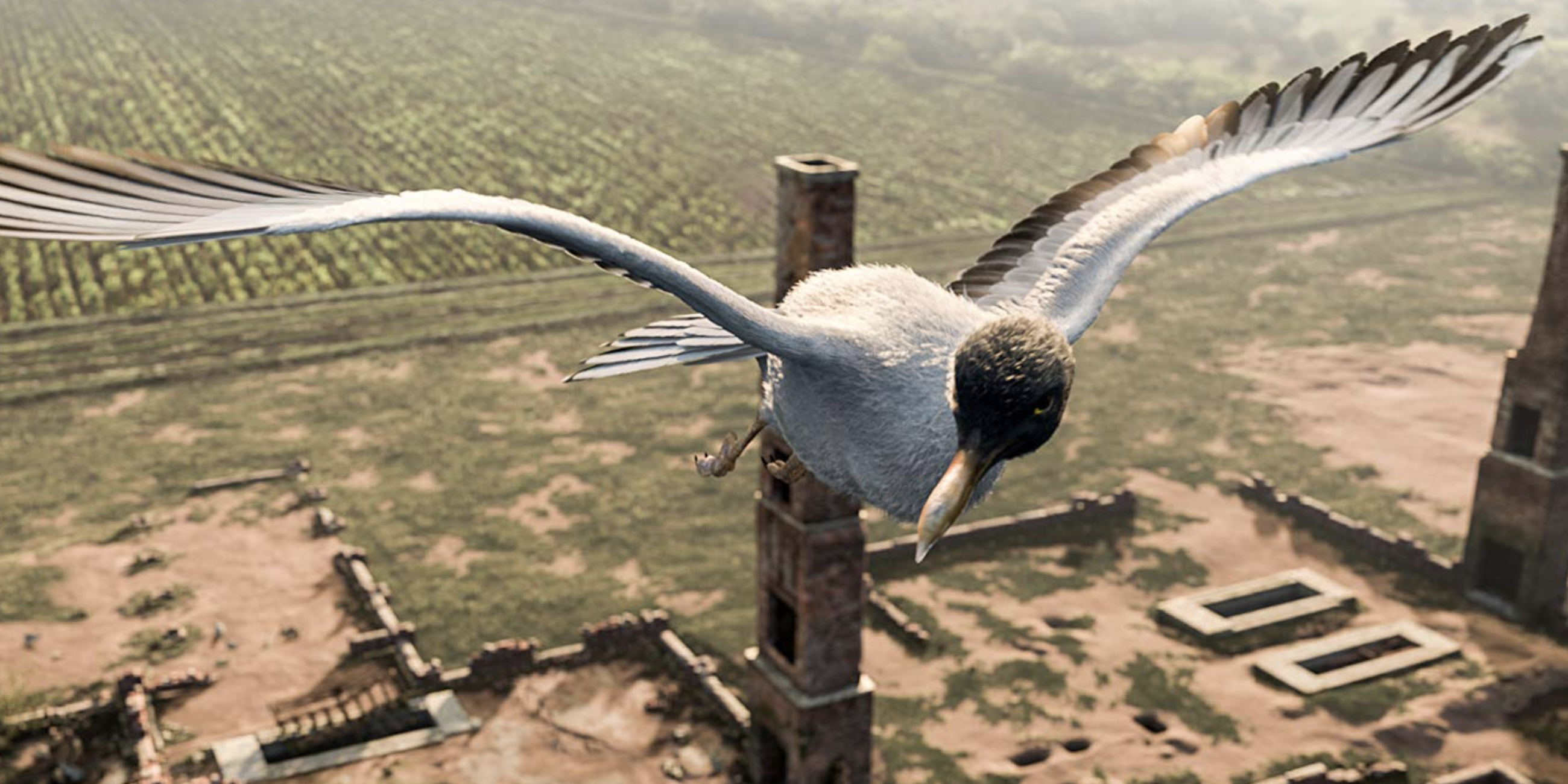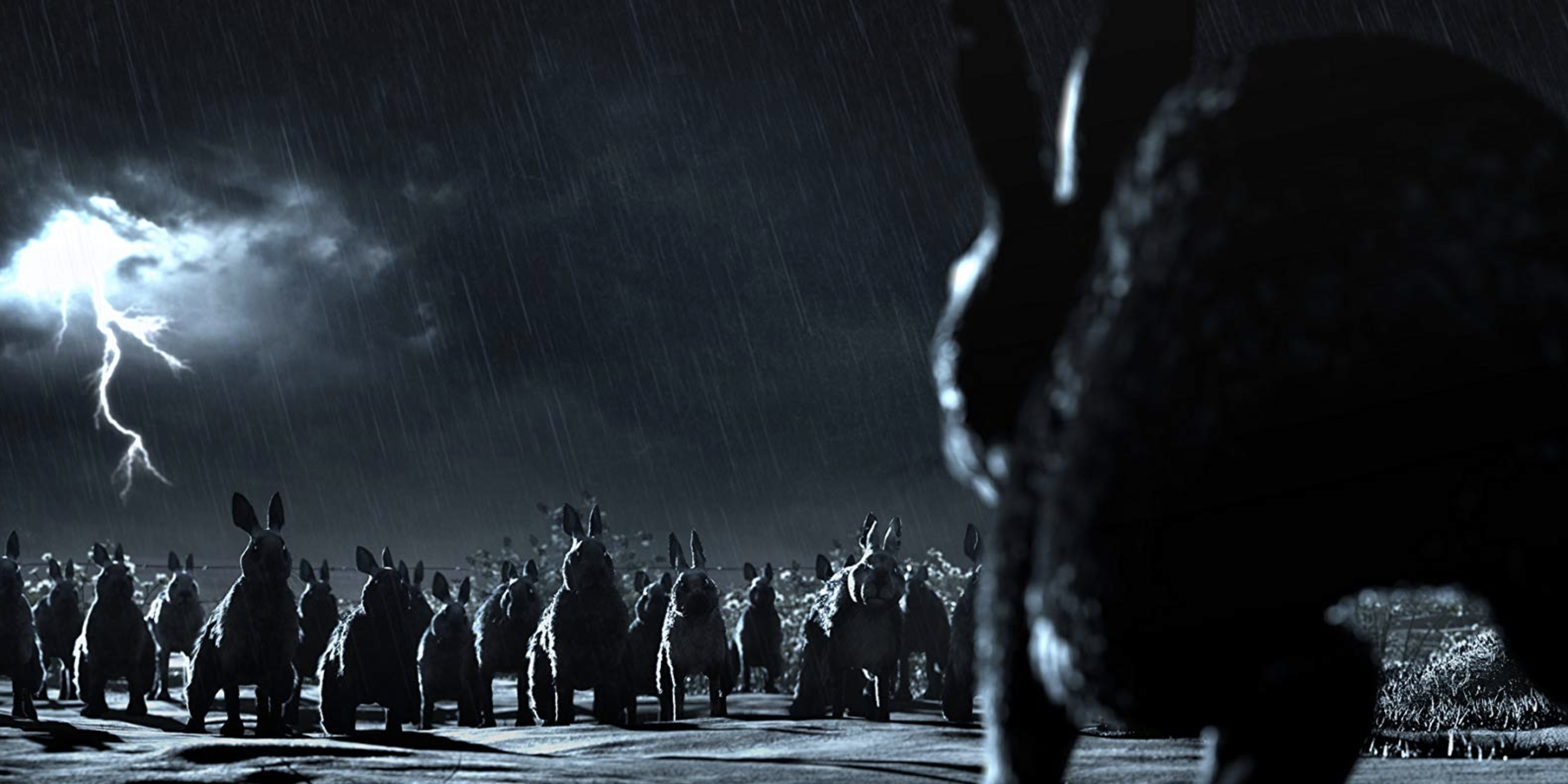The BBC/Netflix WATERSHIP DOWN Miniseries: The Greatest Rabbit Story Ever Told

Frank H. Wu is William L. Prosser Distinguished Professor at…
The new Watership Down is already known not to be a children’s movie. But the original novel by Richard Adams, published in 1972, was never a children’s book either. Few classic children’s books are what they are assumed to be by adults who have long since forgotten the unalloyed exhilaration of opening a new title that turns out to contain a fully-realized world so like and yet unlike our dreary days. Like much children’s literature, Watership Down is less the former than it is the latter, and, consistent with the genre, it is allegorical.
The story of anthropomorphic rabbits who must leave their pastoral home because one among them has visions of its devastation, is explicitly a warning about development and implicitly an appeal against authoritarianism. These are not your children’s bunnies — for that matter, the keeping of pets in a hutch is presented straightforwardly as imprisonment. The BBC and Netflix have teamed up on a four-part big-budget CGI mini-series to introduce us to rabbit heroes. They are not cuddly.
Watership Down is a quest. Unlike J.R.R. Tolkien’s Middle Earth fantasies, The Hobbit and The Lord of the Rings, however, the possibilities of salvation do not include returning to the Shire with its English comforts such as second breakfast and pipe tobacco. This is not “there and back again.” As soon as the herd makes the decision to depart their warren, they face the savage realities which have surrounded them their whole lives, except they were not on the run before. This is Exodus.

The protagonists are brothers, Fiver (Nicholas Hoult) and Hazel (James McAvoy). Their bond is among the many affecting features of the narrative. Fiver remains a runt, and he possesses the power of premonition (in the book, he seemed to suffer from epilepsy, and he saw the future during seizures). Hazel has been loyal to his younger sibling, but he is aware they are “outsiders.”
Their eventual ally is Bigwig (John Boyega). At the beginning, he belongs to the governing regime. Although he joins Fiver and Hazel, leaving behind his soldier status, he does not become the the leader. It falls instead to Hazel, not the smartest, the strongest, nor the fastest, to take on the role of chief in this renegade faction. He displays other qualities that suit him to holding together a group that falls to dissension as they dig new scrapes. He brings out the best in them. That is a rare skill.
Why Did Men Ruin the World of Rabbits?
The rabbits leave a warren that is in denial about environmental disaster (caused by men). They encounter another warren that is complicit in its own massacre, which is the most unsettling of the lapine settlements. They spy rabbits kept by a farming family, the matriarch of which refers to them as her Lucys. The ultimate confrontation is against an autarky established within some sort of former brickworks, ruled over by a despot who himself escaped domestication. Hazel would not be a successful politician nowadays. He is a committed democrat as he rallies his band.
Animality is moral; humanity, not. The rabbits are not only sentient, they are self-conscious. Bluebell (Daniel Kaluuya) appoints himself the official story-teller. He explains they are in a legend. The rabbits, it is revealed in a prologue, have a religious mythos featuring a sun God, Frith. Through a digitally stylized paper cut puppet show, the audience comes to understand rabbits must be extraordinarily clever. Thanks to their multitudes, Frith has ordered all other animals to be their predators, but he also has gifted the prey with tails to distract, ears to hear, and natural trickery.

The rabbit culture defies any rational analysis. Although they speak as animals of hrududil, automobiles and other machines, they also sound like humans in fearing they are “sitting ducks.” The bucks are eager to meet does, and one has nothing else on his mind. The diverse cast, which includes Ben Kingsley, Olivia Colman, Gemma Arteron, and Tom Wilkinson, has a range of Anglo-American accents. One rabbit utters “WTF” — albeit “F” an abbreviation of Frith.
The rabbits also associate themselves with an injured gull named Kehaar (voiced by Peter Capaldi). He has a Han Solo moment, as if he were the Millennium Falcon coming over the horizon, despite doubts about his reliability, to provide the firepower needed in battle. The cross-species coalition, in which the rabbits dig up worms for the fowl they otherwise deem foul, provides a bit of comic relief, not in the boisterous manner of Shrek and Donkey, but more along the lines of Charlotte the spider and Wilbur the pig.
Can Humans Still Watch the Cycle of Life?
The demise of Charlotte is a useful comparison. There are other children’s movies that portray the cycle of life to completion. Imagine if the beginning of Bambi (in which Bambi’s mother is shot) or the ending of Old Yeller (when the dog must be put down) were extended throughout the running time. That is the sustained mood of this miniseries.
The adventure of Watership Down is different, since it does not shy away from death. Captain Holly (Freddie Fox), who had tried to arrest the rabbits as they departed, reappears to report that they were right to escape, but he subsequently meets his end horribly and differently than in the book. He is not alone. The Black Rabbit (Rosamund Pike), a Grim Reaper in fur, accompanies those who are only temporarily absent from her fold. She is beguiling.

Considering how the visuals were created, in a computer with a series of zeros and ones, it is all the more remarkable how palpable everything feels, another confirmation that it is not special effects but direction and script that generate drama. It is politically incorrect, as well as heartlessly rude, to say it aloud, but there once was a time when people were accustomed to co-workers, neighbors, friends, and family passing away with regularity: there was no coddling about mortality when the “death bed” was a literal piece of furniture.
The outtakes from the “family-friendly” March of the Penguins documentary, for example, include a shot that we need to become acquainted with again. The camera zooms out to show dozens of bird corpses. They did not survive the winter freeze. That is the truth of desolation we would prefer not to be exposed to.
For mainstream Americans, that is what likely will render this depiction so shocking. It is not that lives are lost that makes the movie so powerful. It might seem absurd, but this movie has emotional heft. The feelings are genuine, not saccharine.
Another movie with animals, also a remake, and assisted by other forms of cinema magic has a similar plaintive quality, without sliding into sentimentality: the last instalment of the live-action Planet of the Apes. There, too, animals searched for their own promised land. Hazel is another Caesar.
The color palette is consistent with a bleak outlook. It alternates between dark and washed out.
The aesthetic no doubt will displease some. We are not in the uncanny valley yet (where the artificial is indistinguishable from the natural, creeping us out): the rabbits are a simulacrum; no animals were harmed in the production. They are not stylized as in a cartoon, which likely added to the disturbing quality of the 1978 movie. They are not quite right. No doubt a generation hence they will look primitive.
There might be other objections. There is a division of gender roles: the does, not the bucks, dig tunnels and build “the Honeycomb,” their new residence. The females are stronger characters with more to do on screen than there were on page though. These are not conformist rabbits, and they are drawn with an adequate amount of individual differentiation. The pace is much slower than the earlier movie based on the same source, which also was a bloody spectacle remembered for traumatizing kids, but there is not a moment that feels slack. The editing follows the conventions of thrillers, cutting among different action sequences.
How Do Movies Assure Us?
Watership Down celebrates what can be done now. The revolution of streaming entertainment is as much the concept of taking risks by investing in projects that traditional studios would have passed on, as it is the technology that delivers the resulting content. The magnificent achievement here should inspire more adaptations of children’s literature with sophistication. Praise should be given to the producers who were willing to green light this project, because at some point one of them must have mentioned the suspicion to the others that this endeavor would attract a scant audience — no parents who have read any review would allow a youngster to watch this, and adolescents who can take the tone might be turned off by an erroneous impression that the proceedings will be cute.
A responsible critic accordingly should draw attention to these offerings. They deserve to succeed. You must cheer these creatures. Otherwise you are no better than their adversaries.
Perhaps in our era of threat, whether the physical violence of school shootings; the economic violence of the growing gap between haves and have-nots; and the political violence of official oppression, we need such solace as can be provided by an animated epic. Here is offered us the darkness of disruption and the light of continuity: even as predators pursue us, our pack will protect us. We all must belong to community, humans akin to rabbits. Hazel and Fiver give what must always be available: hope and companionship.
If Watership Down is not a children’s movie, who is it for?
Watership Down was originally released to broadcast audiences in the United Kingdom on December 22, 2018, and is available for streaming on Netflix.
Does content like this matter to you?
Become a Member and support film journalism. Unlock access to all of Film Inquiry`s great articles. Join a community of like-minded readers who are passionate about cinema - get access to our private members Network, give back to independent filmmakers, and more.
Frank H. Wu is William L. Prosser Distinguished Professor at University of California Hastings College of the Law, where he has taught on film and law; he previously served as Chancellor & Dean at the institution. He has been published everywhere from the New York Times and Washington Post to the Chronicle of Higher Education and National Law Journal to Huffington Post, and he writes regularly about photography for 35mmc. He is a fan especially of 1970s paranoid thrillers.













